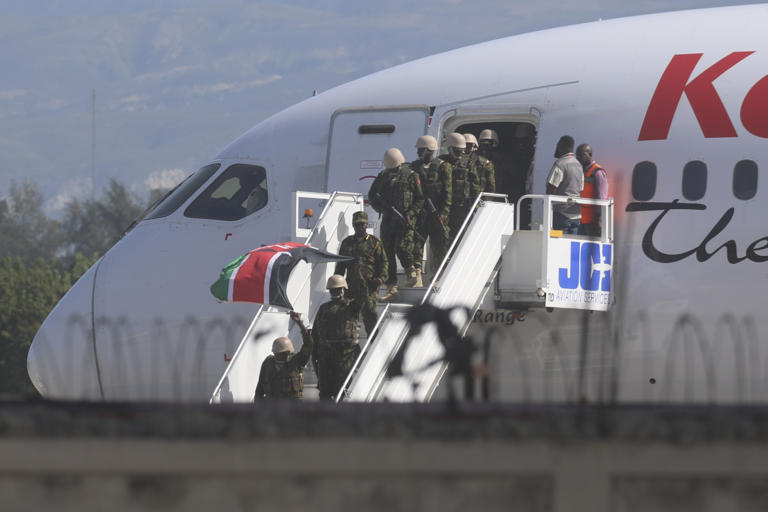
UNITED NATIONS, June 26 (NNN-XINHUA) — UN Secretary-General Antonio Guterres welcomed the arrival of the first Kenyan contingent of international force in Port-au-Prince to support Haitian police, a UN spokesman said.
Stephane Dujarric, chief spokesman for Guterres, said the UN chief appealed to UN members to contribute financially for the Multinational Security Support mission (MSS) in implementing its mandate to help Haitian police restore order in the nation’s capital, wracked by gang violence.
The deployment of the first 400 officers of the anticipated 1,000-member Kenyan force faced several delays, including the Kenyan High Court declaring at one point that such an operation would be illegal. It needed authorizing legislation.
The Kenyans are the first of the more than 2,500 police officers to be involved in the Haiti operation.
Only last week, Kenya reached an agreement with the Haitian government on rules of engagement for the security personnel, who may face fierce opposition from the well-armed gangs that have taken control of Haiti’s capital and overwhelmed local police.
While the MSS was authorized by the UN Security Council, the Kenya-suggested and Kenya-led operation is not a UN force.
Chile, Jamaica, Grenada, Paraguay, Burundi, Chad, Nigeria, and Mauritius are also expected to send police contingents to Haiti.
In addition to restoring order on the capital’s streets, Haiti’s political house is getting itself in order.
“Guterres is following closely the progress in the transitional governance arrangements to restore the country’s democratic institutions through peaceful, credible, participatory and inclusive elections,” Dujarric said. “The United Nations, through our Integrated Office in Haiti — BINUH — alongside relevant agencies, funds and programs, will continue to support Haiti and its people on the path to elections.”
And then there is the need for humanitarian aid.
The spokesman said that since flights resumed at the Port-au-Prince airport in May, aid organizations have been flying in medicine, goods and other equipment critical to emergency humanitarian operations.
“On Friday, Medecins Sans Frontieres airlifted 80 metric tons of medicine and equipment for its operations in the capital,” Dujarric said. “Since last month, the World Food Programme (WFP) has operated four cargo flights to service its own, as well as its partners’ operations. The flights included medicine, medical equipment and supplies to be prepositioned for the ongoing hurricane season.”
He said that in the past few weeks, WFP has transitioned from distributing hot meals to providing cash to thousands of families living in displacement sites in the greater Port-au-Prince metropolitan area. Despite aid organizations scaling up their operations, humanitarian needs remain high in the capital and countrywide.
For example, the spokesman said that the United Nations Children’s Fund (UNICEF) reports concern about the living conditions of 33,000 people displaced from the capital to Leogane, about 40 km from Port-au-Prince. Some 5.5 million people need humanitarian assistance, and 578,000 men, women and children were displaced.
“The 674 million U.S. dollar Humanitarian Response Plan for Haiti is just 23.5 percent funded, with 158 million dollars in the bank,” Dujarric said. — NNN-XINHUA






